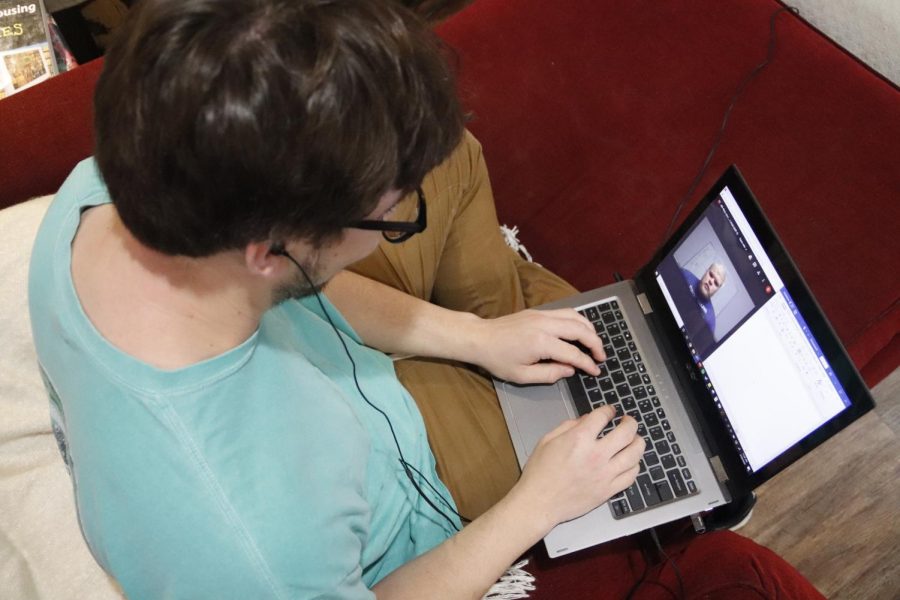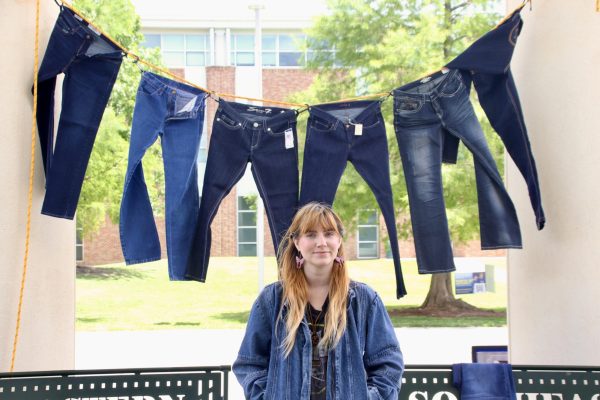Students express challenges of adapting to online classes
Throughout the past few weeks, students have experienced many changes to their daily routines due to the COVID-19 outbreak. One of the biggest changes to which students have been adjusting is the transition from traditional face-to-face lectures to online-only classes.
Students are now completing the rest of their courses for this semester online at their homes rather than in the traditional classroom setting.
For many students, this shift has completely transformed the way they work. Some have never taken online classes and are having to quickly adapt to a method of learning they are not used to.
Breanna Paige, sophomore art major, is one such student. She described how she felt about her first experiences with online classes.
“Personally, it’s harder in the sense that it puts more stress on me,” said Paige. “I feel like I’m constantly checking Moodle and my emails because I feel as if I’m missing something.”
Even though Paige is not used to this style of learning, she noted that the transition to online classes has taught her a lot.
“I’m learning how to manage my time better since I’m still in school and not in a school setting, and it has actually helped me decide on if I will schedule online classes in the future,” shared Paige.
While some students have struggled, others have had an easier transition.
Jordyn Miller, junior biological sciences major, shared that even though she has experienced difficulties, her professors have attempted to make the transition smoother.
“For the most part, my professors have been very patient and helpful during all of this, so that is certainly making the transition easier,” said Miller. “The workload is a bit overwhelming. I try to keep myself to a steady study schedule, but it’s difficult at times.”
For Miller, one of the most difficult adjustments has been trying to find the best time and place to study.
“I get distracted when I’m home pretty easily, so cutting out distractions and just focusing has been fairly difficult as well,” noted Miller.
With the lack of traditional classes and with most students being away from campus, accountability can be a challenge for many students.
Amy Schneida, junior biological sciences major, shared that staying motivated in the midst of such an unprecedented situation has been difficult for her.
“I find myself getting distracted and falling behind,” said Schneida. “It is a tough balance to have to adjust to in under a week. I have already taken four exams since the transition and it has been
dizzying.”
Schneida also shared that many of her friends have been facing similar problems due to the shift.
“A lot of my friends are struggling with it,” shared Schneida. “Either they are having trouble with motivation because they are not getting face-to-face time with their professors, or it is just too much organize on their own.”
To stay on top of all of her work, Schneida has tried to stick to a consistent schedule.
“A lot of people are treating this like a vacation, and I have no idea how,” commented Schneida. “I’m constantly working on school for upwards of 12 hours a day. I think the only way I’ve been able to not drown in work is sticking to a very rigid schedule.”
Students are encouraged to stay healthy and safe throughout the pandemic. University faculty and staff recommend students check the university website for updates regarding the coronavirus outbreak.
Your donation will support The Lion's Roar student journalists at Southeastern Louisiana University.
In addition, your contribution will allow us to cover our annual website hosting costs.
No gift is too small.

Dylan Meche is a Political Science major from Baton Rouge and serves as Opinions Editor. He has been a reporter for The Lion's Roar since August of 2019....







